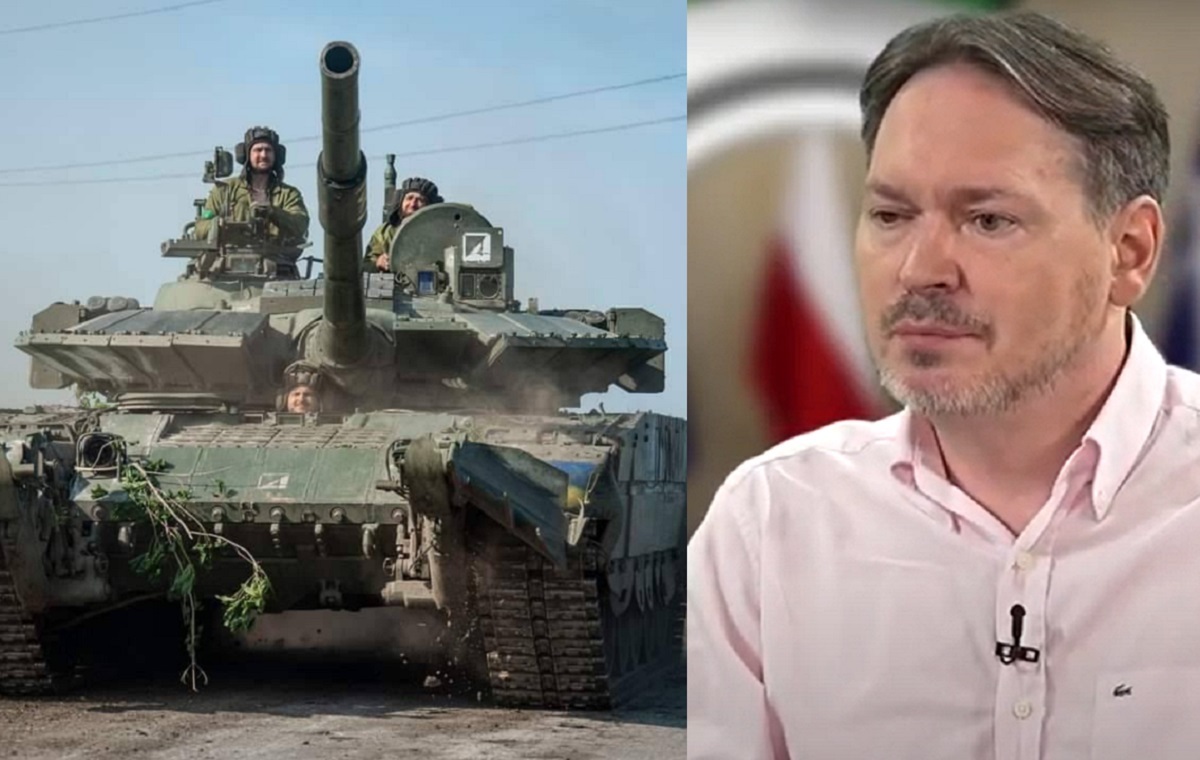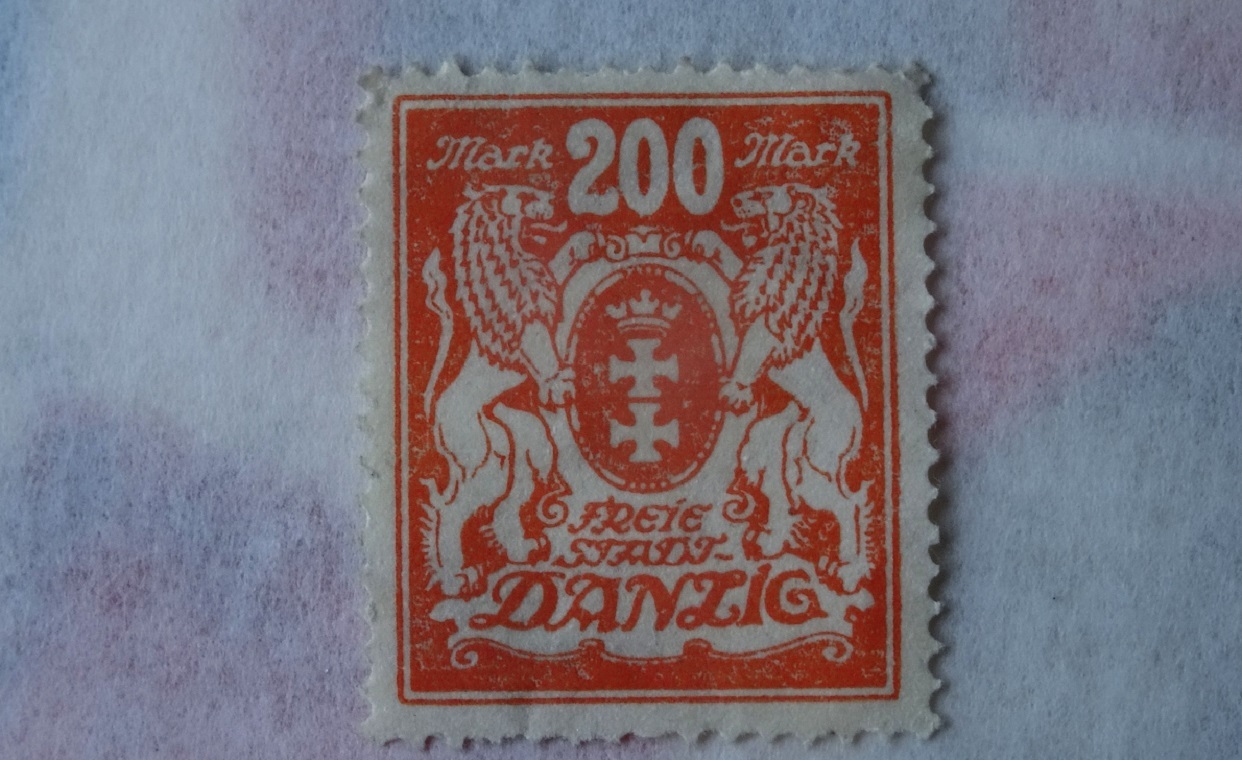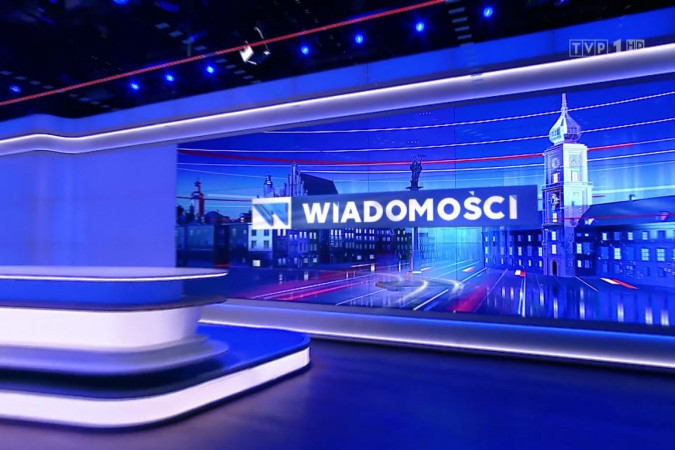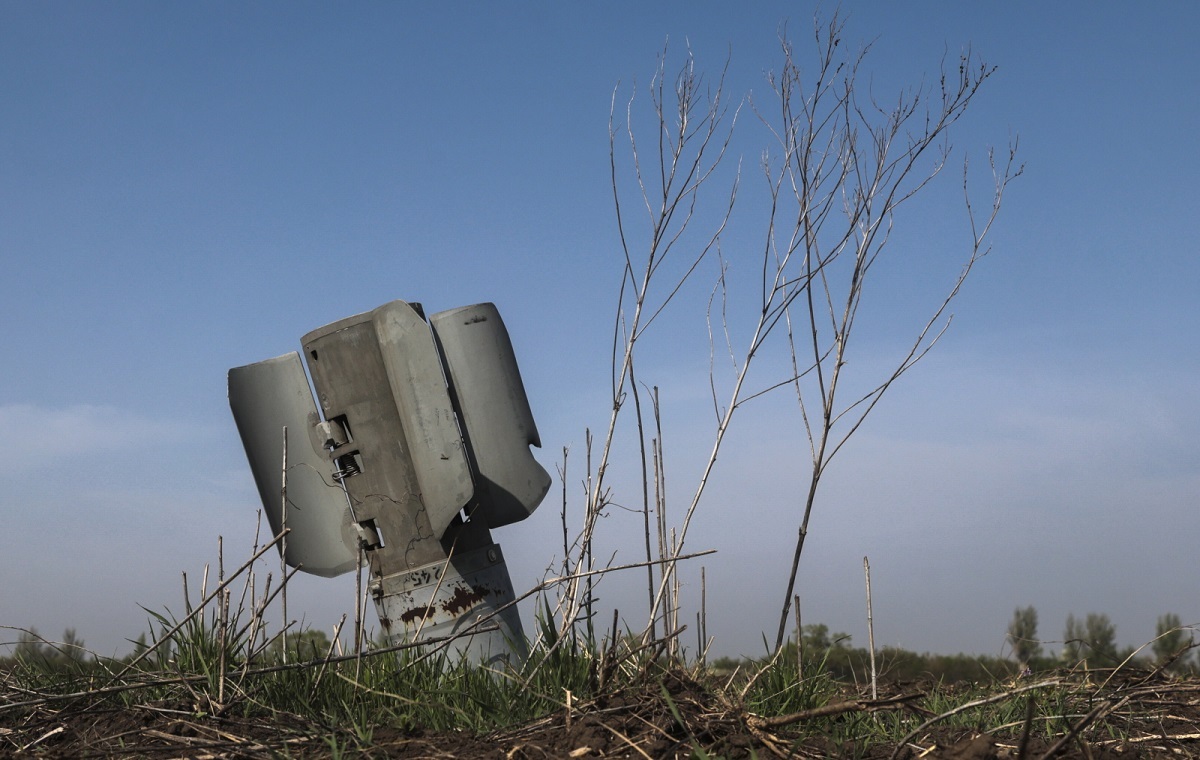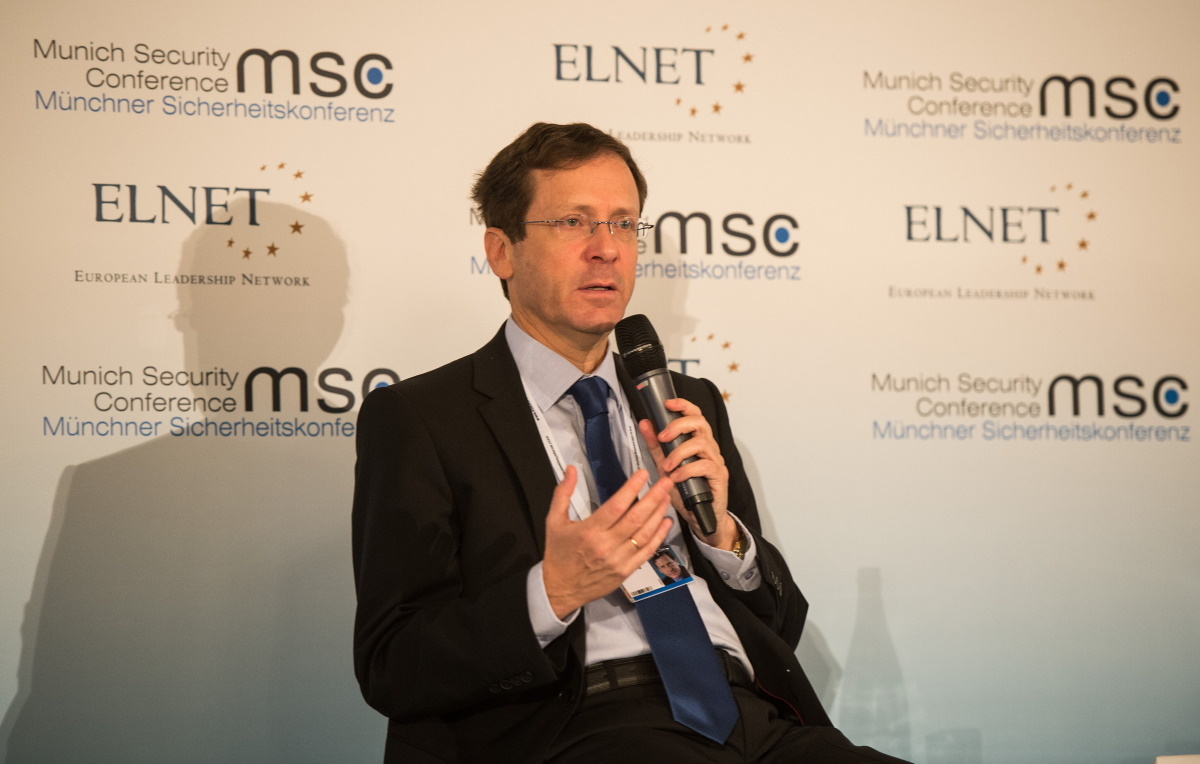“If the war ends with more concessions from the West in the name of a quick truce and forces Ukraine to make territorial concessions, Russia will not really learn the lessons that will erase its imperial ambitions. Therefore, in a short time – in the sense of a few years – it may rebuild its potential and continue to pursue the same policy, wanting to resolve, above all, the capture of Ukraine, but in the long term it could threaten many other areas, including the Member States of the European Union. “- said in an interview with the portal wPolityce.pl prof. Tomasz Grzegorz Grosse, sociologist, political scientist and historian, lecturer at the University of Warsaw.
READ ALSO:
-President Zelensky’s adviser warns: If Russia wins with Ukraine, Russian chauvinism will strengthen and there will be World War III
-Sweden and Finland in NATO? Minister Rau in Turkey: “I am an optimist”; “This issue will be resolved in a spirit of unity and solidarity”
wPolyce.pl: There is an opinion that Russia’s aggression against Ukraine was the first stage of World War III. Do you share this view?
Prof. Tomasz Grzegorz Grosse: Yes. In my opinion, this is a very likely scenario, especially since in the first place Russia goes to war not only with Ukraine, but with the whole West, with the United States, with NATO countries, and officially proclaimed it. Second, this conflict with the West may not be resolved in a war in Ukraine, as it may end up in an unsatisfactory manner for Russia. Russia will sooner or later want to continue fighting with the West – feeling threatened by the West, but at the same time wanting to take revenge or revenge for the fact that the West supported Ukraine in this conflict and Russia could not fully achieve it. his goal in taking control of all of Ukraine. Lastly, China sees the United States as its main rival. At the same time, China is afraid of the collective West, namely NATO – very dissatisfied with the fact that NATO may be enlarged by Finland and Sweden as a result of the war in Ukraine. Therefore, sooner or later a clash between the West and China is also being prepared, namely mainly the US and some of its allies, perhaps mainly from the Pacific region, but perhaps also NATO members Europe and China, although they do not participate directly. in the Ukrainian conflict. , however, they supported Russia verbally and diplomatically and viewed this war from the perspective of future conflicts with the United States and the West. Therefore, all the arguments I put forward here suggest that there will be a continuation of the conflict on a larger scale, even if the war in Ukraine ends soon. And it can even be assumed that the sooner it ends, in a less obvious way from the point of view of Russia’s settlement or defeat in Ukraine, the more likely it is that the next phase of this conflict – obviously hot – in the next ten or dozen years. .
The question is, to what extent will the war in Ukraine and everything that is happening around it bring Russia and China closer together? Although both countries regard the US and NATO as enemies, the Beijing-Moscow line is not as peaceful as it may seem at first glance. In which direction will he go? After all, the decision to expand NATO was led by none other than Vladimir Putin, and I don’t think that Beijing is not paying attention to this.
Of course. This is a valid argument. It seems that the war in Ukraine is bringing Russia closer to China. First of all, China made Russia dependent on itself on many fronts – geopolitically and economically, not wanting to let a defeated Russia become a country with friendly relations with the West after some time. They don’t want Russia to be neutral or friendly with the West. This is a major problem from Beijing’s point of view. He wanted a subordinate and subordinate Russia, dependent on himself. However, there are still areas of strong disagreement between Beijing and Moscow, which could potentially lead to a very noticeable deterioration in relations between the two capitals – not counting the wars, which have been fought between the two countries in the history of the last few decades, and even the fact that both countries are communists. it does not prevent armed conflict and clear hostility between them.
In my opinion, the first structural factor that can lead to a very marked deterioration in relations between the two countries is a geopolitical shift to the West, for example as a result of regime change in Moscow to a more liberal or pro-Western one. one. This is highly unlikely at the moment, but there are potential risks. Second, Russia may at some point not want to support Beijing’s dominant status and dependence on many different fronts. Just as he is currently rebelling against the West, believing that he is expanding his sphere of influence to include Ukraine, Russia may revolt against China if they feel that these relations are too asymmetrical and that Beijing demands more concessions from Russia. And finally, the third factor is the various competing interests in Central Asia, but also in relation to Siberia or the northern provinces of China, where politicians on both sides consider this situation to be a potential sphere of influence for these countries in a situation of strong weakness. from the neighbors. For example, Aleksandr Dugin in one of his books explicitly writes that these northwestern provinces of China can become a sphere of influence for Russia if China weakens. This suggests that this is a region that could become a field of geopolitical competition, and most importantly post-Soviet states in the sense that they were formed as a result of the collapse of the Soviet Union in Central Asia, where the expansion of Chinese influence has been evident for many years. , and at the same time Russia did not reject imperial aspirations in this area, and that was an obvious area of contention.
However, a similar dispute arose between Russia and Turkey over the former republic inhabited by people of Turkish origin.
Some analysts point out that the sooner NATO joins the conflict in Ukraine openly against Russia, the less global the consequences of a world war will be. Will it really be so?
In my opinion, this scenario is very unlikely at this stage of the conflict, unless one of the NATO countries is attacked directly by Russia, but this scenario is also, in my opinion, unlikely to happen. However, I believe that if NATO continues its efforts to support Ukraine and this war ends with Ukraine’s success, understood as pushing Russian troops out of its territory, it will be a solution that will ensure greater stabilization of the international order in the long term. provision. On the other hand, if the war ends with further concessions by the West in the name of a swift truce and forces Ukraine to make territorial concessions, Russia will not really learn the lessons that will erase its imperial ambitions. Therefore, in a short time – in the sense of a few years – it will probably rebuild its potential and pursue the same policy, wanting to finish, above all, seizing Ukraine, but in the long term it could threaten many other countries. region, including the Member States of the European Union. Therefore, in my opinion, such a scenario is very real, namely the desire to reduce costs and seek to end the conflict as soon as possible at this stage, which in the long run, in fact, is not profitable for the West.
The question is whether even if Ukraine manages to push Russian troops out of territory occupied since 2014, will it really be enough to stifle Russia’s imperial ambitions? However, Russia has enormous strategic depth, rich in raw materials, with which it can be safely used to arm itself. Is that really enough? Shouldn’t steps be taken to pacify Russia over the next 50-100 years? If so, what actions might be taken?
Of course, there is the danger that you mention – I think that even the most positive scenario from a Ukrainian point of view, namely the expulsion of Russian troops from Crimea and the Donbas, should not anger Russia. However, this is a scenario that can be read as a very harsh lesson for Russia that its aggressive policies, particularly towards the West, will be met with harsh reactions from the West, as was the case with Ukraine. However, this would dampen imperial Russian aspirations towards the West, and at the same time, even if certain strategic depths or imperial policy traditions continued, it would have to be directed towards Central Asia and potentially to a deteriorating situation in relations with China. That should be the goal of the West. First of all, a very strong lesson about what ended imperial expansion to the west, and at the same time directed this revanchist policy towards Central Asia to set Russia against China. However, if Russia is not taught such a lesson now when it comes to Ukraine and the west, we can be sure that in a few or a dozen years Russia will return to the topic, namely aggression to the west, only on a much larger scale than it is today.
Russia is preparing – or at least this is what information now shows – getting ready for a long-term conflict in Ukraine. What are the consequences of this prolongation of the conflict for Poland and the Baltic states?
We also have to prepare for a long conflict and we also need to mobilize our allies to stay on this task – firstly, it’s about supporting Ukraine in terms of the armed forces, but also in terms of helping Ukraine, for example in economic and economic matters, sales of agricultural products Ukrainian origin, etc. This requires certain mobilization and policy changes in the EU on many fronts. Starting with the fact that current budget priorities must be completely changed, certain policies should be abandoned, which at this point should simply be removed from the agenda, because they are of secondary importance from the point of view of this most important objective, viz. beat Russia. I am talking here about very expensive policies, for example climate policy, but also about reforming energy policies, so that it will allow sanctions to be included in all categories of Russian energy resources as soon as possible. Moreover, given the imminent food crisis, the Common Agricultural Policy cannot be charged with the costs of climate policy. The policy of sanctions against Poland should be suspended, because it is impossible to fight Russia and Poland at the same time. Brussels, Berlin and Paris must decide whether their strategic goal is to defend European values in Ukraine or try to sanction the conservative government in Warsaw. If Brussels chooses disputes within the European Union as more important from its own point of view, it will be at the expense of EU mobilization in terms of these efforts in the east, which is important from the point of view of European integration and EU security in general. Unfortunately, such mobilization of the European elite seems to be a devout dream at the moment.
Thanks for the conversation.
Anna Wiejak interviewed

“Reader. Future teen idol. Falls down a lot. Amateur communicator. Incurable student.”

